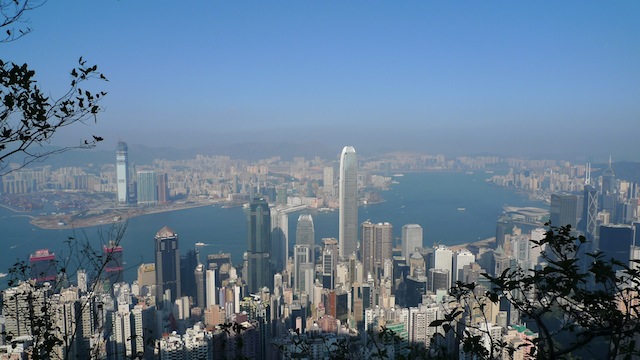The Chinese government’s declaration of a Shanghai Free Trade Zone recently made headlines with speculation the region might be exempt from the nation’s internet blocks.
For Hong Kong, the Chinese government’s move is another blow to the territory’s already declining position as the main gateway to the People’s Republic.
As part of the Decoding The New Economy series of interviews, I spoke to Brian Wong of Hong Kong’s Seacliffe Partners about the challenges facing the territory and the role the former British colony will play over the next few decades.
“Hong Kong, I think, is the perfect bridge between East and West, ” says Brian. “But I think Hong Kong has been in search since the change over in 1997 as to where it really wants to focus itself.
The territory is squeezed between Singapore that has established itself Asia’s leading financial hub and now is positioning itself as a creative centre and Shanghai which has become the new ‘Gateway to China’ with its domestic financial centre and deep water port.
Despite the challenges facing the Territory, Brian sees opportunities in the city’s cultural and business environments.
“One of the great things about Hong Kong still is its international community and its accessibility for creative types,” Brian says. “I think Hong Kong is starting to recognise this advantage.”
“You have a large base of Chinese based manufacturers looking to beyond just low cost OEM manufacturing, what they need is creative design and innovation. If Hong Kong can be one of the big suppliers of that then they have a really good opportunity.”
One area Brian sees Hong Kong has an advantage is in its developing a hardware hackers culture that fits in with the massive manufacturing hubs surrounding the territory along the southern Chinese coast.
“I went to a talk where there was a fellow from Mountain View, California who does a lot of product invention,” Brian tells. “He’s set up a lab in Hong Kong to do product innovation because although he recognises China has a low cost manufacturing base, he doesn’t want to live in Shenzhen.”
The challenge for Hong Kong is to encourage a more entrepreneurial mindset, Brian believes. He also sees Hong Kong having an opportunity in being a conduit for the Chinese diaspora looking at investing into the PRC.
Probably the biggest advantage Brian sees Hong Kong having are in its mature legal and capital markets that Shanghai and other Chinese centres lack – “these are world class,” he asserts.
Ultimately though it may be that Shanghai, Beijing, Taipei or Singapore aren’t threats to Hong Kong at all as each city becomes the centre of certain aspects of a diverse Chinese and East Asian economy.
“I think much like in the United States there is not just one financial centre – you’ve got Chicago, New York and you’ve got different roles for different cities, LA for media and San Francisco as the gateway into the United States.”
“There’s room for more than just one. The question is what does Hong Kong want to be and how does it want to be most valuable to the China story.”

Leave a Reply